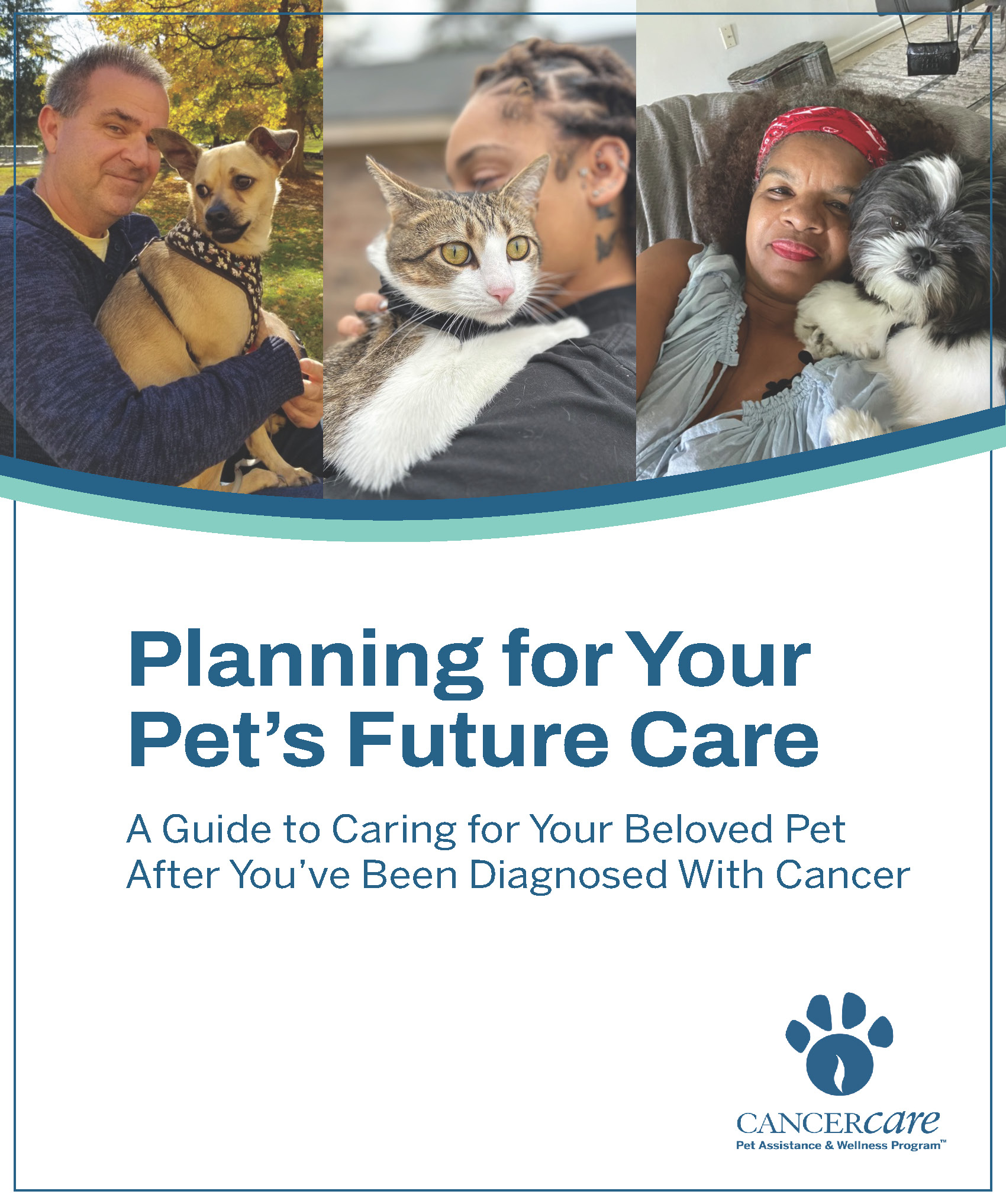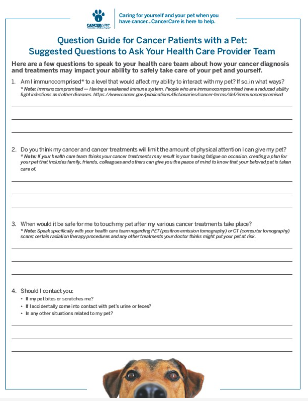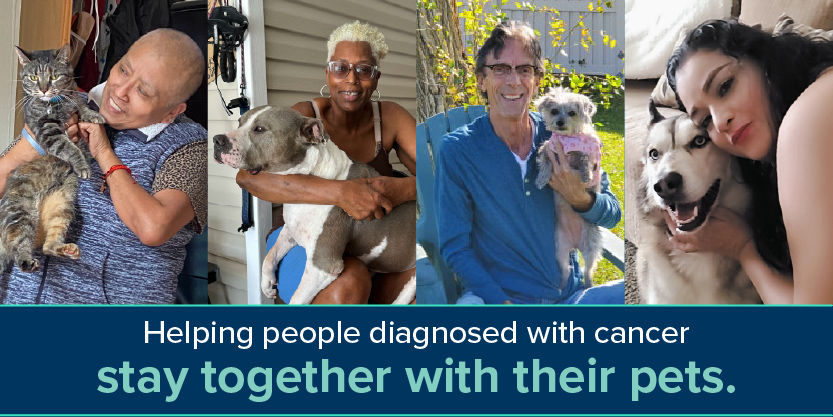Guides

Planning for Your Pet’s Future Care: A Guide to Caring for Your Beloved Pet After You’ve Been Diagnosed With Cancer
CancerCare offers suggestions for how to have ongoing conversations about your cancer diagnosis and your pet’s care with your own health care team and your pet’s veterinarian; tips for finding low-cost or free pet care support resources; guidance on how to find temporary care support such as a foster home; and comprehensive information so you can be fully informed of all your options should you have to make the difficult decision to find a new home for your beloved pet. View our companion video >>
Download now >>
Fact Sheets
Living With Your Pet After Your Cancer Diagnosis
It can be challenging to know how a cancer diagnosis may affect your relationship with your pet. In this fact sheet, CancerCare offers a few health-related tips on living with a pet after your cancer diagnosis.
Download now >>
What to Know if You Are Undergoing Chemotherapy and Have a Pet
This fact sheet addresses several precautions you should be mindful of to protect you and your pet’s health while you are undergoing chemotherapy.
Download now >>
What to Know if You Are Undergoing Radiation Therapy and Have a Pet
This fact sheet addresses several precautions you should be mindful of to protect you and your pet’s health while you are undergoing radiation therapy.
Download now >>
The Benefits of Sharing Your Life With a Pet
Your pet is a beloved family member who gives unconditional love and support. But did you know sharing your life with a pet also has health benefits?
Download now >>
What Your Veterinarian Would Like You to Know
Your veterinarian is a key member of your health care team. If you are comfortable, let your veterinarian know about your cancer diagnosis, and discuss the topics addressed here.
Download now >>

Suggested Questions to Ask Your Health Care Provider Team
It is important to talk to your own health care team about your pet. Consider asking these questions at your next appointment.
Download now >>
Funding for this educational content is made possible by a generous grant from Amie’s Place Foundation, which funds organizations that create no-fee programs dedicated to keeping families and pets together safely.
Pet Care Education
Personal Stories
Program Overview
Funding for these educational videos is made possible by a generous grant from Amie’s Place Foundation, which funds organizations that create no-fee programs dedicated to keeping families and pets together safely.
PAW in the News
- Organization Works with Cancer Patients to Ensure They Can Keep Their Pets
The Animal Rescue Site - Dogs Needing Friends for Health & Cancer Patients Needing Pets for Support
The Pet Buzz Podcast - Cancer Patients Worry About Losing Their Pets
Cancer Health - Owners Diagnosed with Cancer Have Difficulty Paying for Veterinary Visits, Survey Finds
dvm360 - Cancer Patients Can’t Afford Pet Food and Vet Care, CancerCare Survey Finds
Press Release - CancerCare Launches New Resources to Support Pet Owners Impacted by Cancer
Press Release - CancerCare: An Organization With a Personal Touch
Strategies Magazine - PAW Program Provides Aid to Cancer Patients With Pets
Veterinary Practice News - CancerCare Aids Cancer Patients in Caring for Their Pets
The Cancer Letter - How One Nonprofit Aims to Lend a Helpful Paw to Help Patients With Cancer Care for Their Pets
CURE Magazine - $1M Grant To Help Cancer Patients Care for Pets
NJBiz - Caring For Your Pet When YOU Have Cancer
Animal Wellness Magazine - CancerCare's Pet Assistance and Wellness (PAW) Program
The Catnip Times - Advice—and Videos—on Keeping Your Pets if You Have Cancer
Cancer Health - CancerCare and Amie’s Place Foundation Partner To Help Keep Patients With Cancer and Their Pets United
dvm360 - Amie’s Place Partners With CancerCare To Bring Vital Support Services To People Affected by Cancer
Press Release - Edelman’s Shark Tank For Good Event Scores Wins For All Involved
Forbes - Help For Your Pet During Your Cancer Journey: What A Great Idea!
Dr. Len's Blog - Go Small When Working Towards Health Equity
OBR - Q&A: How Do Pets Help Those Coping With Cancer?
Julie Loffredi, National Health & Wellness Content Desk - CancerCare Launches Financial Assistance Component of Pet Assistance and Wellness (PAW) Program to Help Cat and Dog Owners Affected by Cancer
Press Release









